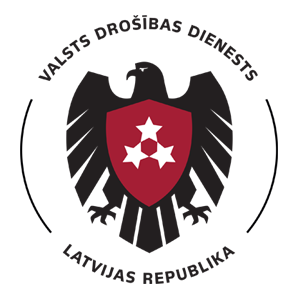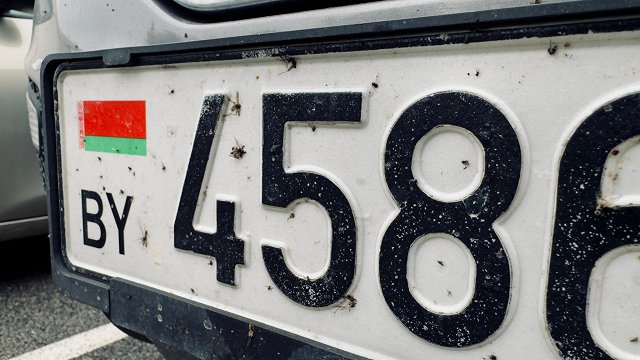The strategy describes the terrorism threat situation in Latvia and in other countries and also defines the joint strategic basic principles for the prevention of terrorism financing for Latvian institutions which are involved in the prevention of terrorism financing, the VDD said in a news release.
"The basic principles defined in the above-mentioned strategy will help to secure an effective terrorism financing prevention system in Latvia by decreasing risks of terrorism financing and will develop a coordinated and effective cooperation among the institutions which are involved in the prevention of terrorism financing," it said.
The VDD accentuated that the terrorism threat level in Latvia remains low but that terrorism is still one of the main security threats in Europe and worldwide.
"Terrorists are constantly searching for new ways to finance their activities: activities of terrorist organizations, travel of fighters and their participation in armed conflicts, preparation of attacks, recruitment of new members, spreading of propaganda, purchase of arms and counterfeit documents, covering everyday expenses etc." said the VDD.
"Even though no incidents connected with terrorism have taken place in Latvia and no activities of terrorist organizations have been established, VDD has come across persons in Latvia who express views that indicate about radicalization risks. VDD has also established Latvian residents who have joined the Islamic terrorist organization "Daesh"."
The full strategy for the prevention of terrorism financing can be found on the VDD homepage as a 36 page downloadable PDF.
However, the most eye-catching parts of the strategy are several case studies that reveal how Latvian companies, banks and ports have in the past been part of criminal plans for terrorist financing and sanctions-busting schemes or to facilitate the transit of dangerous goods.
On Russia, the guidelines say: "Taking into account the geopolitical situation of Latvia, increased attention must be paid also to deals with Russia and transportation of goods through its territory. Due to the close links of the Russian commerce and economics with the military industry, products allegedly intended for the national economy are frequently used for military purposes. This is one of the reasons why economic sanctions, which are not directly related to proliferation, are widely imposed on Russia. Russia cooperates also with other countries subjects to sanctions (Iran, North Korea), which causes additional risk to get indirectly involved in the implementation of circumvention of sanctions."
A case studies are then cited involving Latvia (earlier examples involve France, Belgium, Lithuania and Spain).
Russian citizen X with a company registered in Latvia was engaged in organisation of illegal proliferation of technological materials from the USA to Russia (microchips manufactured in the USA were delivered to Russia for a possible use in military industry). Microchips were received from the USA by courier mail and afterwards independently exported to Russia by train. An application was also sent to the relevant institutions of the USA to obtain a permit for a purchase of a large quantity of microchips; a company the production manufactured by which may be used for military purposes was specified as the end user. After rejection of the application, repeated consignments of microchips were organised by courier using forged invoices.
A second case study involves a Latvian angle in sanctions-busting.
Companies A and B registered in Latvia were involved in supplies of oils intended for military needs from Belarus and Russia to Syria. Delivery took place via Latvia by using the infrastructure of the Riga port companies. In separate cases, the ports of neighbouring countries of Syria were used for sending of the mentioned goods (by not sending the goods from Riga directly to Syria) in order to avoid from violating the sanctions. Payment for the goods and sending thereof was organised by the companies registered in Latvia via offshore companies.
A third case study involves Belarus and the nuclear industry.
Companies A and B registered in Latvia were involved in transit of materials usable in nuclear industry to Syria from Belarus through Latvia by specifying incorrect codes of goods. Belarusian company X unsuccessfully attempted to send silicon fibre to Syria through Latvia (due to the parameters, fibre is to be considered as a sensitive good, which may be used for the development of missiles).
In all eight case studies are cited, with the final one involving the supply of weappons from Cuba to North Korea, though it is not clear what, if any, role Latvian entities played in the complex scheme.
Person A owned company X in country Y in South-East Asia. Business partner of A was the North Korean company Z, engaged in maritime traffic. Company X provided services related to maritime traffic. The investigation revealed that the company Z was involved in the supply of weapons from Cuba to North Korea, and company X had paid for the crossing of the sea channel by the vessel owned by Z. Person A had given its consent to use accounts held by X in the interests of the company Z, therefore, during the period from 2009 to 2013, more than 600 transfers were made through the accounts held by A (in the total amount of 40 million USD).





























